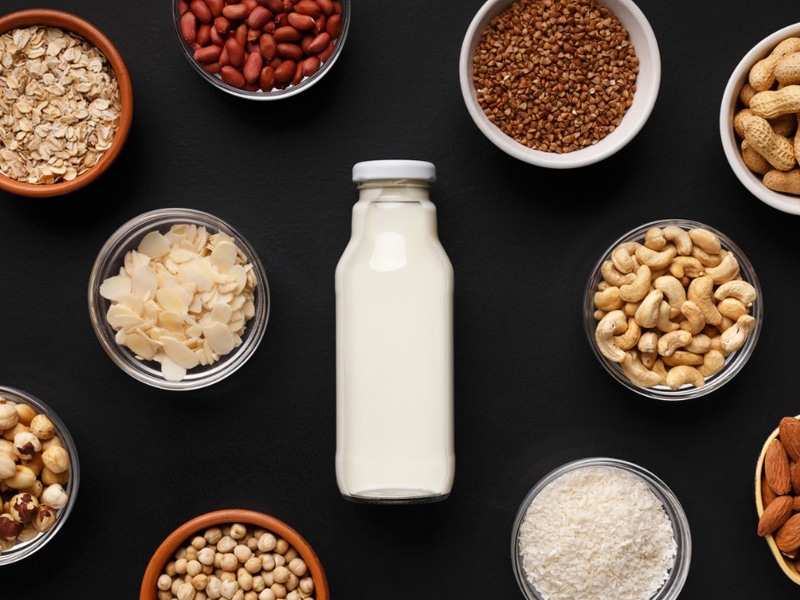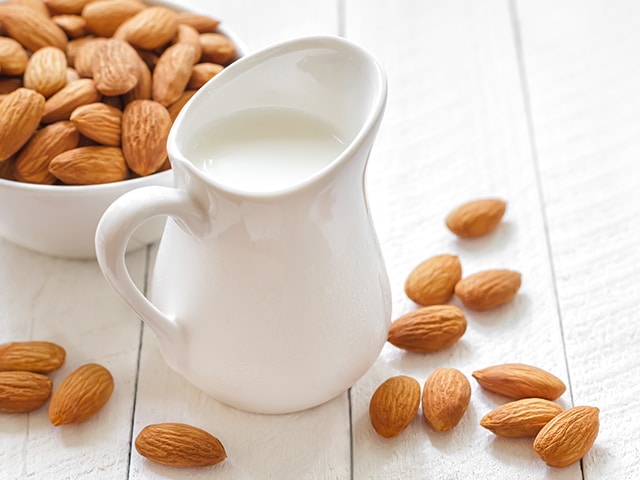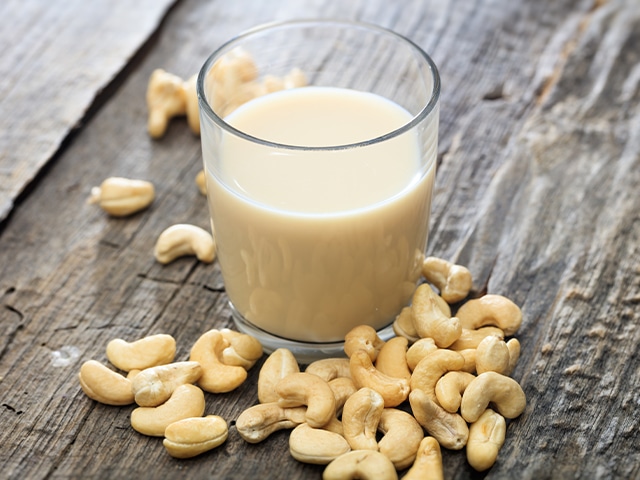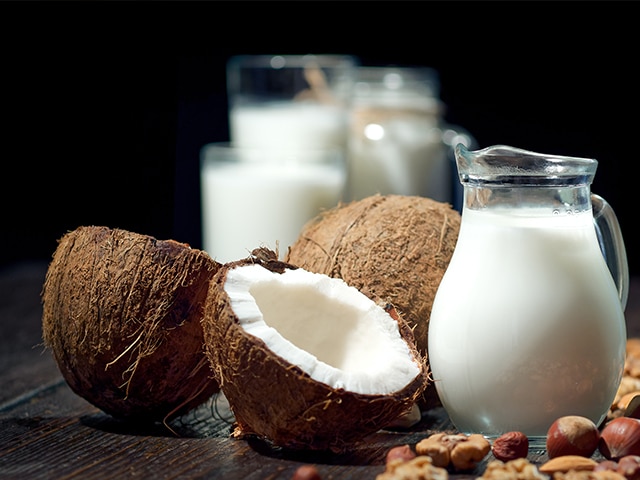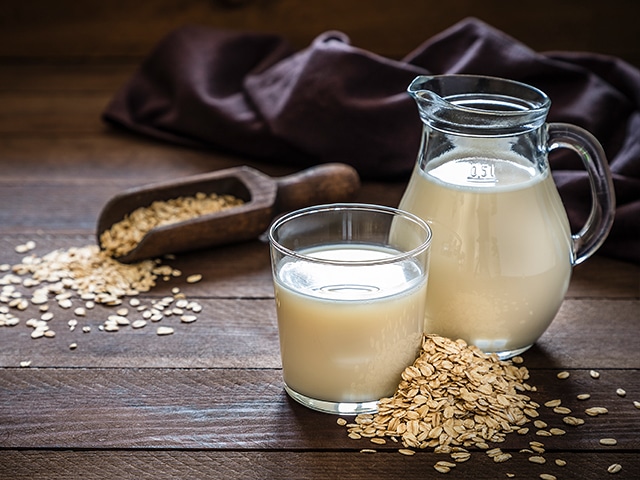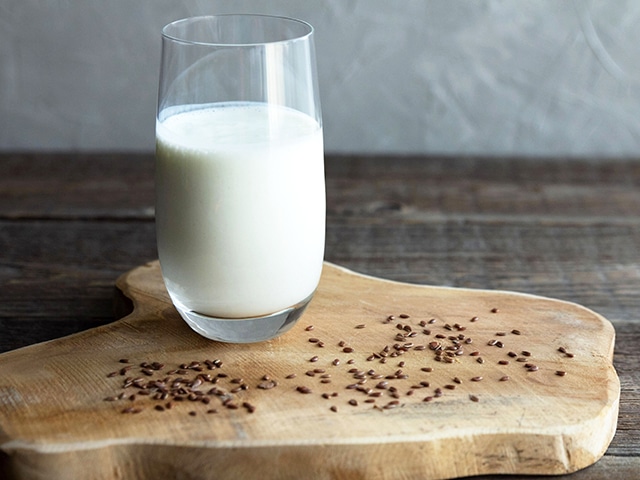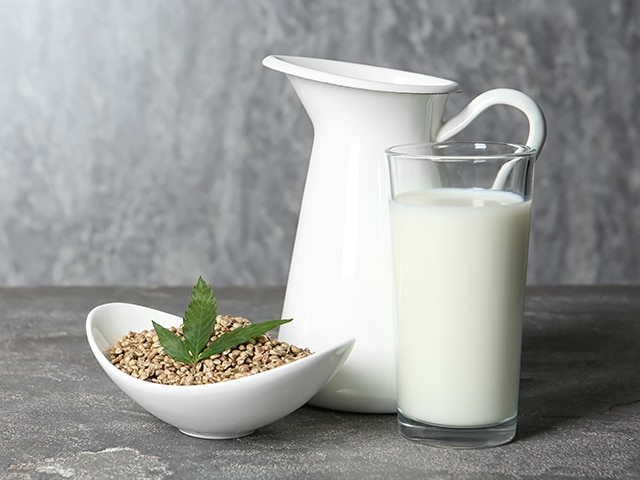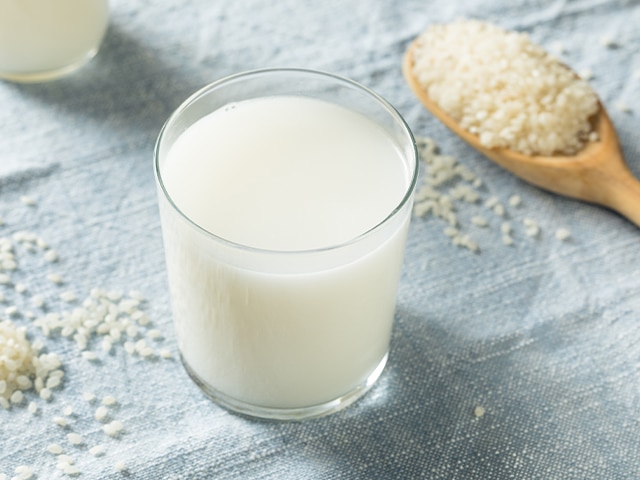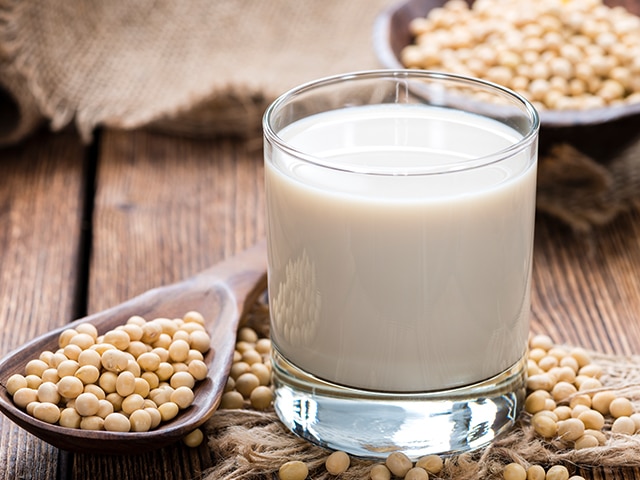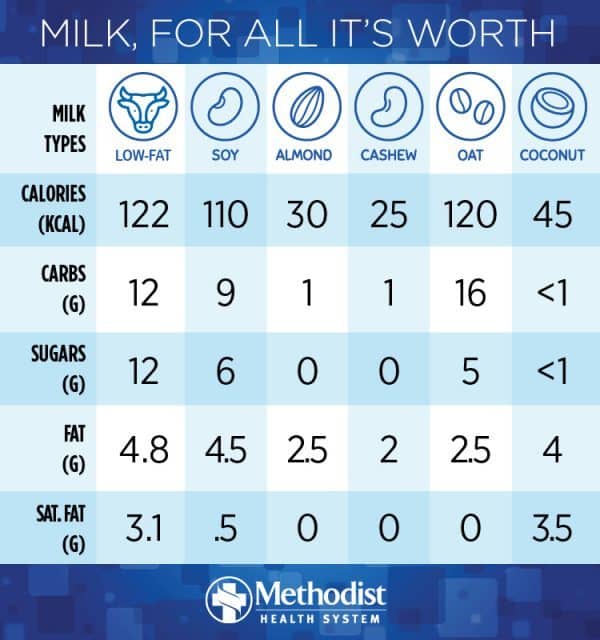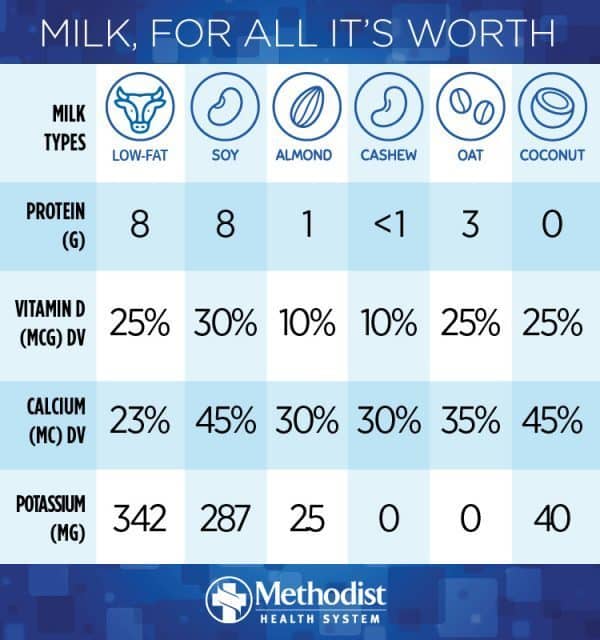It used to be so simple: milk came from cows — these days, plant-based alternatives are now abundant for consumers. A quick trip to the milk section of your favorite grocery store will show you how just much that has changed.
Soy, oat, cashew, almond, and flaxseed milk are a few of the options available.
“Some people see non-dairy milks as healthier options,” says Carey Shore, MS, RD, LD, wellness coach at Methodist Dallas and Methodist Richardson Medical Centers. “Plus, they are a great option for people who have dairy allergies or lactose intolerance. There is no ‘one size fits all’ for dairy products and alternatives.”
Carey advises that you should choose a plant-based milk that contains a small number of ingredients and additives. That’s because most options have sweetened and unsweetened versions, and some add vanilla flavoring. So, it’s important that you check out the nutrition facts for preservatives and other additives before trying something new.
“It’s best to opt for a plain flavor,” Carey says. “Flavorings in the milk increase the amount of added sugar and saturated fat, and they add more indecipherable ingredients to the product.”
When checking out the nutrition label, read beyond the amount of calories and carbohydrates it contains per serving. Instead, get in the habit of reading the vitamin portion of the label.
“Consider the amount of protein, calcium, and Vitamin D, as this food group should provide ample amounts of those nutrients,” Carey says. “This option might be great for weight loss, while another can improve heart health.”
Here’s a list of benefits for common plant-based milks to help you determine what might be best for you and your family:
ALMOND MILK
The almond has a reputation for being the healthiest of the nut family, and it’s believed to play a role in reducing diabetes. Compared to whole milk’s 150 calories, unsweetened almond milk contains just 30 calories per serving.
“Almond milk doesn’t contain cholesterol or saturated fats,” Carey says, “so it would be considered heart healthy.”
Almond milk is great for your skin and eyesight, too. According to the National Institutes of Health, it has 50% of the recommended daily requirement of Vitamin E.
CASHEW MILK
Not only are cashews arguably one of the tastiest nuts out there, but unsweetened cashew milk provides the lowest calories of all the nut-based milks. Due to the amount of Vitamin E in each serving size, cashew milk can also boost eye health by protecting cells from free radicals that could break down tissues.
COCONUT MILK
Coconut milk is frequently used in Asian-inspired recipes. It’s low in calories and carbohydrates, so if you drink it in moderation it shouldn’t tip the scale. It also has a significant amount of Vitamin B12 to give you a nice boost of energy. And with 40 milligrams of potassium per serving, coconut milk can lower the risk of cardiac arrhythmia.
OAT MILK
For anyone allergic to nuts but wants to explore a new plant-based milk instead, oats provide a great option that should also be gluten-free. Just like oatmeal, oat milk helps reduce cholesterol levels because it contains a fiber called beta glucan. It also has more protein than flax milk, another nut-free milk.
FLAX MILK
Flax milk comes from the Linaceae plant. Flaxseeds have a reputation for being one of the healthiest and most beneficial plants out there. Flax milk is packed with Omega-3 fatty acids and Vitamin B12, and has 25 calories per serving. It’s filled with alpha linoleic acids, which can help combat heart disease by reversing the hardening of blood vessels.
HEMP MILK
Don’t worry: Hemp milk is made from the seeds of the cannabis sativa plant, so it doesn’t contain the intoxicant tetrahydrocannabinol. But it is known to have a relaxing effect that’s believed to help reduce stress, anxiety, and symptoms of premenstrual syndrome. Another benefit of this vegan milk is that it contains nitric oxide, a gas molecule that makes your blood vessels dilate and relax, which can help lower blood pressure and reduce the risk of heart disease. It also contains Omega-3 fatty acids, which promote cardiovascular health.
RICE MILK
If you’re looking for a plant-based milk that doesn’t come from a nut or bean, then rice milk might be the choice for you. This lactose-free milk is high in carbohydrates so it will give you a nice boost of energy. And due to the rice bran oil it contains, the milk encourages cardiovascular health and can help lower cholesterol. It also has antioxidants such as selenium and manganese, which can promote normal brain functioning, and aid in preventing cancers and thyroid problems.
SOY MILK
Soy milk comes from the soybean plant, a member of the pea family (would you believe pea milk is also a thing?). If your daily diet has room to add a few extra calories or carbs, you could drink soy milk guilt-free. It promotes bone and heart health and has the highest protein content of any option on this list.
“From a nutrition perspective, soy is very similar to cow’s milk in terms of protein content,” Carey says.
Do it yourself
All of these kinds of plant-based milk have one more benefit to consider: They can easily be made at home.
If you have an idea of which milk you’d like to create, search for it online and you’ll find many recipes to choose from — so long as you have a reliable blender and a cheesecloth to filter the debris from the milk.
“If you have the skillset, time, and motivation, try making milk yourself!” Carey says. “I always encourage people to get in the kitchen and see what they can create on their own.”
Be sure to let us know which non-dairy milk you’ll be trying next.

